Illinois’ brand-spanking-new legislative watchdog, Michael McCuskey, clearly can be dubbed the accidental legislative inspector general.
While Democrats and Republicans were arguing about not acting to appoint either of their favorite job finalists, McCuskey, a former federal judge appointed by former President Bill Clinton, read the statute. It said if the office sits vacant for 45 days, its work will fall under the auspices of the state auditor general’s office. Retired and feeling more than a bit stir crazy, McCuskey called the auditor general’s office in January to offer his services and said he was told, “We’re not taking applications and I don’t know what you’re talking about.”
McCuskey, of Marshall County, north of Peoria, persuaded whomever answered the phone to pass along his interest to the powers that be. Soon, Illinois Senate President Don Harmon’s chief of staff and chief legal officer reached out and, after contentious floor debates over how he was being appointed, McCuskey now finds himself the officer charged with investigating complaints of unethical behavior in the legislative branch.
Given the office’s history, it boggles the mind that so many qualified people applied to serve. A quick Google search reveals the office has been a seat of frustration.
It sat unoccupied for nearly four years until the #MeToo movement landed at the capitol and embarrassed lawmakers were forced to fill it. All three of McCuskey’s predecessors have outlined the ways in which the office is hamstrung by a lack of full power and independence. The prior occupant, former judge Carol Pope, called the office “a paper tiger” when she announced she was resigning last fall after lawmakers failed to approve legislative fixes. They did approve a law allowing the legislative inspector general to launch investigations without first seeking permission from the legislative ethics commission. But, Pope noted, the inspector general still has to seek approval to issue subpoenas from the four Democrats and four Republicans on the commission. Further, that commission also must vote to publish reports of wrongdoing by lawmakers. And, just as it did when trying to name a replacement for Pope, the commission frequently deadlocks. When that happens regarding a finding of wrongdoing, none of us know about that misdeed in our government.
Pope has said the most critical problem is that the jurisdictions of the legislative inspector general and the legislative ethics commission are not identical. If the legislative inspector general were to find that a violation of the Illinois Governmental Ethics Act occurred, she or he would have nowhere to take the findings to seek redress. For example, if a legislative inspector general found evidence a lawmaker committed conduct unbecoming, there is no panel empowered to impose a penalty.
Despite knowing all of this and knowing Pope personally, McCuskey placed a call, watched what he called a “spitball fight” over his nomination and now finds his way to the capitol to delve into the one complaint filed while the office again sat vacant, and whatever else might come over the remainder of his term.
“All my Republican friends, they said you don’t know what you’re getting into,” McCuskey said.
And while his predecessors were reserved and sober about the job at hand, McCuskey clearly enjoys a good chat and is relishing the work ahead.
“One, I’m bored. Two, I’m old. Maybe I’ve got half a tank left,” he said. “This is a job I think I can make a difference by just being nonpartisan and doing my investigations. And be fair, truthful and let the chips fall where they may.”
He was unaware there is at least one piece of legislation in the mix this session to give his office more tools, House Bill 5499, which includes a provision to require that non-elected officials regularly serve on the Legislative Ethics Commission.
McCuskey said he knows the office is restricted, but he still believes he can make it work. “Each judge looks at things differently,” he said. “I’m just a straight shooter. Follow the law, follow the facts, follow the evidence. I look at this as another public service job I can do. Every job I have, I think I’ve made a difference.”
He’s already hinted he won’t be shy about going public if he becomes frustrated.
“I don’t think that they want a former chief federal judge to hold a press conference,” he said. “I brought that up. You can’t be four-to-four forever. This job needs to work and I’m going to try to make it work.”
Will the accidental appointment crash and burn?
“Maybe they think, ‘He doesn’t know how this works,’” McCuskey said. “We’ll see. I’m an optimist. My glass is always half full.”
Madeleine Doubek is executive director of Change Illinois, a nonpartisan nonprofit that advocates for ethical and efficient government.
This article originally appeared on Crain’s Chicago Business.
